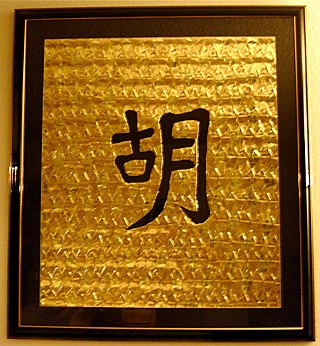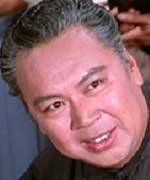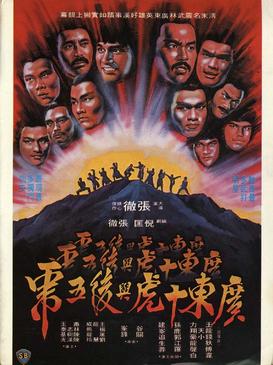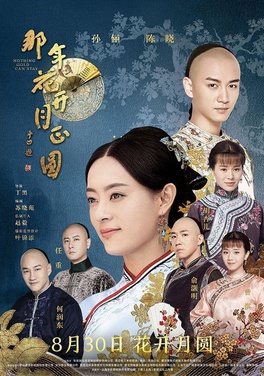Hu Ying may refer to:
- Hu Ying (revolutionary) (1884–1933), revolutionary in the Republic of China
- Hu Ying (chemist) (1934–2023), Chinese physical chemist
Hu Ying may refer to:

Hu Shih was a Chinese diplomat, essayist and fiction writer, literary scholar, philosopher, and politician. Hu contributed to Chinese liberalism and language reform and advocated for the use of written vernacular Chinese. He participated in the May Fourth Movement and China's New Culture Movement. He was a president of Peking University. He had a wide range of interests such as literature, philosophy, history, textual criticism, and pedagogy. He was also a redology scholar.

Hu Jintao is a Chinese retired politician who served as the general secretary of the Chinese Communist Party (CCP) from 2002 to 2012, the president of China from 2003 to 2013, and chairman of the Central Military Commission (CMC) from 2004 to 2012. He was a member of the CCP Politburo Standing Committee, China's de facto top decision-making body, from 1992 to 2012. Hu was the fifth paramount leader of China from 2002 to 2012.

Qiu Jin was a Chinese revolutionary, feminist, and writer. Her courtesy names are Xuanqing and Jingxiong. Her sobriquet name is Jianhu Nüxia. Qiu was executed after a failed uprising against the Qing dynasty and is considered a national heroine in China and a martyr of republicanism and feminism.

Hu is a Chinese surname. In 2006, it was the 15th most common surname in China. In 2013, it was the 13th most common in China, with 13.7 million Chinese sharing this surname. In 2019, Hu dropped to 15th most common surname in Mainland China.

Lo Wei was a Hong Kong film director and actor best known for launching the martial arts film careers of both Bruce Lee, in The Big Boss and Fist of Fury, and Jackie Chan, in New Fist of Fury.

Hu Dahai, courtesy name Tongfu (通甫), was a Chinese Muslim and military general who lived in the 14th century. He is best known for helping Zhu Yuanzhang establish the Ming dynasty in China.

Ten Tigers from Kwangtung is a 1980 Hong Kong martial arts film directed by Chang Cheh and produced by Mona Fong. It is one of Chang Cheh's tales of Shaolin's historic rivalries with the Qing dynasty and the Canton Tigers. Along with the Brave Archer series, Ten Tigers had an all-star cast of Shaw martial artists.

The Hunanese people or Xiang-speaking Chinese are a Xiang-speaking Han Chinese ethnic subgroup originating from Hunan province in Southern China, but Xiang-speaking people are also found in the adjacent provinces of Guangxi and Guizhou.

Celebrations of the 100th anniversary of the founding of the Republic of China were held on 10 October 2011, on the 100th anniversary of the Xinhai Revolution. It was celebrated in both mainland China and Taiwan, ruled by the People's Republic of China (PRC) and the Republic of China (ROC) respectively, but the connotation and significance of the celebrations varied between the two.

Shiu-Ying Hu, BBS, or Hu Xiuying, was a Chinese botanist. She was an expert in the plant genera of Ilex (Aquifoliaceae), Hemerocallis (Amaryllidaceae), and Panax (Araliaceae). She studied the families Orchidaceae, Compositae, and Malvaceae, and Chinese medicinal herbs and food plants. She was given the nickname "Holly Hu" by her colleagues for her extensive work with holly plants.
Haman Hu, also known as Hua Shao, is a Chinese television host. He is known for being the host of The Voice of China. and Sing! China
The following lists events in the year 1991 in China.

Be With You is a 2015 Taiwanese romance, family drama television series produced by Sanlih E-Television, starring Bobby Dou, Huang Pei Jia, Nylon Chen, and Vivi Lee as the main cast. The Chinese title literally translates to "Want To Love". Filming began on March 18, 2015 and the series was aired while filming continued. First original broadcast began April 14, 2015 on SETTV channel, airing weekly from Monday till Friday at 8:00-9:00 pm.
Miao Tien was a Chinese film actor mostly active in Hong Kong and Taiwan.

Nothing Gold Can Stay is a 2017 Chinese television series directed by Ding Hei and starring Sun Li and Chen Xiao. The series aired on Dragon TV and Jiangsu TV from 30 August 2017 to 8 October 2017. No official credit is given, however, it's clear the series borrows the title from a Robert Frost poem of the same name.

"What Happens After Nora Leaves Home?" is a speech given by Chinese writer Lu Xun at Beijing Women's Normal College in 1923. In his speech, Lu Xun evaluated the ending of A Doll's House by Norwegian playwright Henrik Ibsen, where the heroine Nora leaves home to search for her selfhood. Concerned with the blind following of Nora's rebel, Lu Xun spoke to address its potential danger.

Hu Ying was a Chinese physical chemist who was a professor at East China University of Science and Technology, an academician of the Chinese Academy of Sciences.
Ying He may refer to:
Hu Ying, originally named Zu Mao, courtesy name Jingwu, later changed to Ying, courtesy name Jingwu, also known by the pseudonyms Zongwan and Xuan'an, was a democratic revolutionary, political figure, and military leader during the late Qing Dynasty and early Republic of China. He was born in Baishishi Village, Shangxiang, Taoyuan County, Changde Prefecture, Hunan Province, and his ancestral home was in Shaoxing, Zhejiang Province. He was a contemporary of Song Jiaoren.